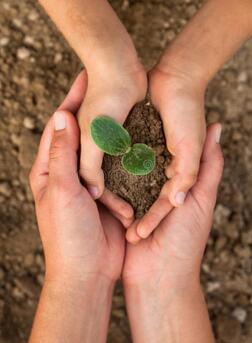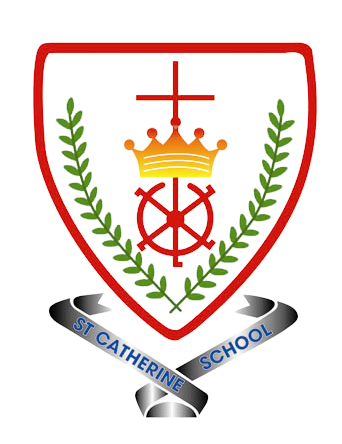EYFS
EYFS CURRICULUM
'I have come that they may have life and have it to the full” – John 10:10.
Early Years Foundation Stage at St Catherine Catholic Primary School and Nursery
At St Catherine Catholic Primary School and Nursery, we believe in providing a secure foundation for future learning and development for our children. We want
our children to be happy, confident life-long learners who find learning irresistible.
Intent
 Our EYFS curriculum allows children to develop interpersonal skills, build resilience and become creative thinkers. We aim to provide a fun, secure, challenging and rich educational environment that enables each individual to thrive. Reception and Nursery work closely with each other to ensure continuity and consistency across the foundation stage. Our Mission statement, “living life in all its fullness”, is at the heart of everything we do. We place a strong emphasis on the religious, spiritual, moral and cultural development of all our pupils. At St Catherine we believe in never giving up and making the most out of every opportunity given to us in order to find out what we are passionate about and where our gifts and talents lie. We ensure pupils have a safe and stimulating environment in which to learn and explore and aim to foster children’s individual wants, needs and interests in order to enable them to get the most out of their experiences. Our aim in the EYFS is to build strong foundations rooted in academic success as well as moral and spiritual development, so that ultimately our pupils can be successful, go on to be active citizens of society and be happy, curious life-long learners. Children have lots of opportunities to facilitate their own learning through carefully resourced provision areas and adults support children through high quality interactions that challenge thinking and extend learning. Our curriculum is designed around the child. By giving learning a purpose and application, skills for reading, writing and solving mathematical problems will become meaningful and more desirable.
Our EYFS curriculum allows children to develop interpersonal skills, build resilience and become creative thinkers. We aim to provide a fun, secure, challenging and rich educational environment that enables each individual to thrive. Reception and Nursery work closely with each other to ensure continuity and consistency across the foundation stage. Our Mission statement, “living life in all its fullness”, is at the heart of everything we do. We place a strong emphasis on the religious, spiritual, moral and cultural development of all our pupils. At St Catherine we believe in never giving up and making the most out of every opportunity given to us in order to find out what we are passionate about and where our gifts and talents lie. We ensure pupils have a safe and stimulating environment in which to learn and explore and aim to foster children’s individual wants, needs and interests in order to enable them to get the most out of their experiences. Our aim in the EYFS is to build strong foundations rooted in academic success as well as moral and spiritual development, so that ultimately our pupils can be successful, go on to be active citizens of society and be happy, curious life-long learners. Children have lots of opportunities to facilitate their own learning through carefully resourced provision areas and adults support children through high quality interactions that challenge thinking and extend learning. Our curriculum is designed around the child. By giving learning a purpose and application, skills for reading, writing and solving mathematical problems will become meaningful and more desirable.
Through play-based learning and topics, we endeavour to provide each child with a range of opportunities which stimulate their creativity and support their development based on their likes and interests. We value the importance of the outdoor environment to enable children to develop their thinking, problem solving and collaborative working skills.
Implementation
At St Catherine Primary School and Nursery, we follow the Early Years Foundation Stage framework. This is made up of four overriding principles which our early year’s education is based upon:
Unique Child – Every child is unique child who is constantly learning and can be resilient, capable, confident, and self-assured.
Positive Relationships – Children learn to be strong and independent through positive relationships.
Enabling Environments – Children learn and develop well in enabling environments, in which their experiences respond to their individual needs and there is a strong
partnership between practitioners and parents and carers.
Learning and Development – Children develop and learn in different ways. The framework covers the education and care of all children in early year’s provision,
including children with special educational needs and disabilities.
Areas of learning and development
There are seven areas of learning and development. The areas are: -
Personal, Social and Emotional Development – involves providing opportunities for young children to be active and interactive; and to develop their co-ordination,
control, and movement. Children must also be helped to understand the importance of
physical activity, and to make healthy choices in relation to food.
Communication and Language – involves giving children opportunities to experience a rich language environment; to develop their confidence and skills in expressing themselves; and to speak and listen in a range of situations.
Physical Development – involves helping children to develop a positive sense of themselves, and others; to form positive relationships and develop respect for
others; to develop social skills and learn how to manage their feelings; to understand appropriate behaviour in groups; and to have confidence in their own abilities.
As children grow and make progress in the prime areas, this will help them to naturally develop skills within the four specific areas. These are:
Literacy – the early teaching of literacy involves encouraging children to link sounds and letters and to begin to read and write. Children are given access to a wide range of reading materials (books, poems, and other written materials) to ignite their interest.
Mathematics – the early teaching of mathematics involves providing children with opportunities to develop and improve their skills in counting, understanding and using numbers, calculating simple addition and subtraction problems; and describing shapes, spaces, and measures.
Understanding the World – this involves guiding children to make sense of their physical world and their community through opportunities to explore, observe and
find out about people, places, technology and the environment.
Expressive Arts and Design – this involves enabling children to explore and play with a wide range of media and materials, as well as providing opportunities and
encouragement for sharing their thoughts, ideas and feelings through a variety of activities in art, music, movement, dance, role-play, and design and technology.
Phonics
We follow the Wandle Letters and Sounds framework. Please click here for further information.
Impact
We have extremely high expectations of pupils and staff. We want each child to get the best possible start in life to be ready to thrive in Key stage 1. At St Catherine Primary and Nursery School, we do this by ensuring ongoing assessment is an integral part of the learning process. Staff observe pupils and these observations are used to plan next steps and future lessons. Baseline assessments are carried out at the beginning of term to allow us to monitor and track pupils progress right from the start. Pupils Learning Journey is shared with parents each term. Parents are also invited to termly Parents evenings to discuss a child’s progress and targets. At the end of the reception year, staff complete the EYFS profile for each child. Pupils are assessed against the 17 early learning goals. As a team, we carry out regular internal and external moderation and training sessions, so that we feel confident that our judgements are consistent with a range of other settings. By monitoring assessment procedures regularly, we can effectively demonstrate what learning is taking place, how each child is progressing and how we can challenge pupils further in all seven areas of the EYFS curriculum.
The EYFS staff are committed to raising standards by attending relevant CPD and ensuring each child at St Catherine, has the best start on their school journey. Pupils at St Catherine make good progress from their varied starting points. They leave the Reception class with a love of learning and a confidence to extend their own learning. They transition well into Year One with the knowledge and skills needed for their next stage of learning. They can access learning with a good level of independence, and they show a curiosity of the world around them. They have gained resilience and see mistakes as opportunities to learn. They have become good problem solvers and their questions skills are developing.
The Impact of our curriculum is also measured by the effectiveness it has on helping our children to become gentle, compassionate, well-rounded individuals who embody our Gospel values and demonstrate these in their everyday lives.
